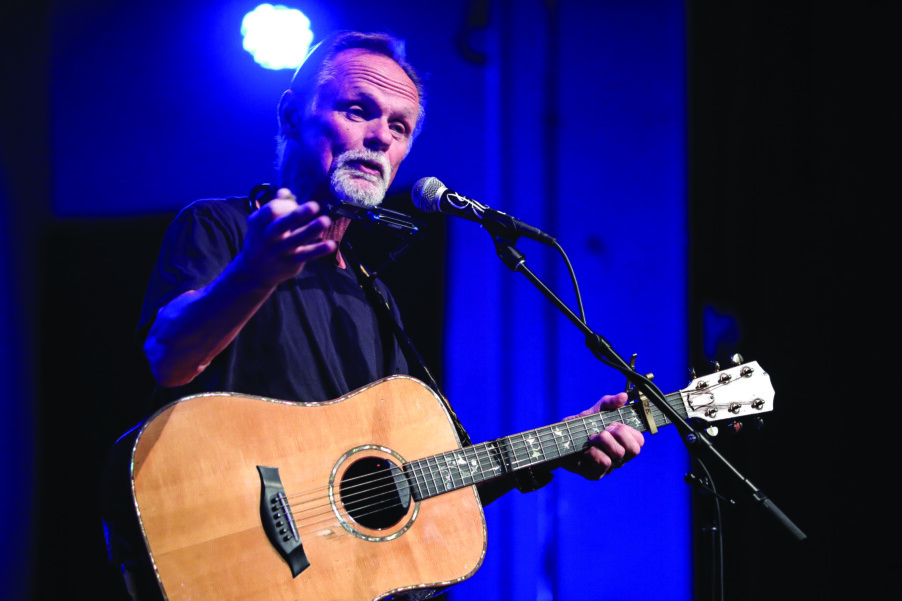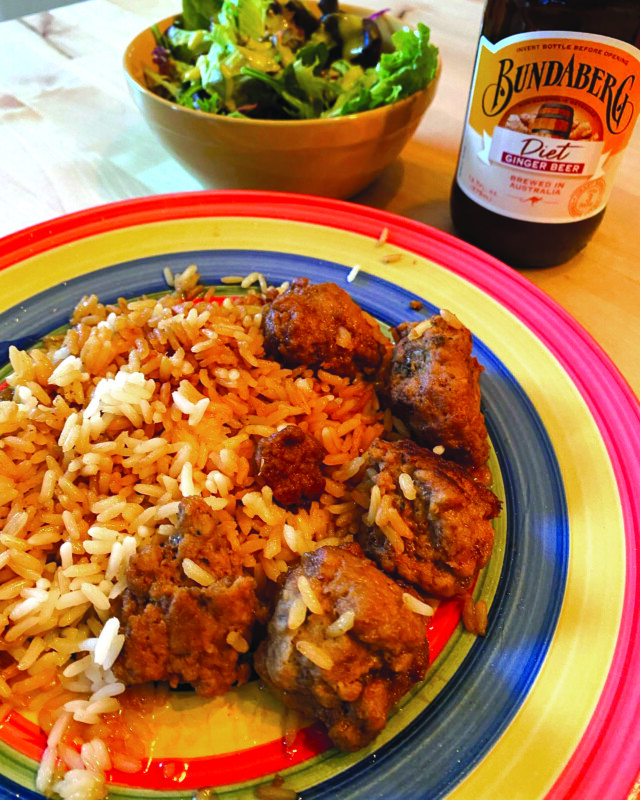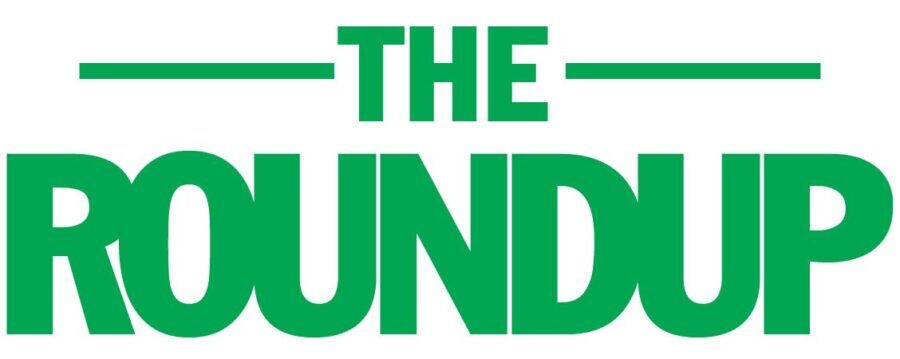Old (PG-13)
A family has a pretty terrible day at the beach in Old, the latest, I don’t know, not horror really, thriller or something, from M. Night Shyamalan.
Married couple Guy (Gael Garcia Bernal) and Prisca (Vicky Krieps) were probably always going to have a lousy holiday at some resort on an unnamed island. Sure, their kids, 11-year-old Maddox (Alexa Swinton) and 6-year-old Trent (Nolan River), seemed pretty excited about a resort with a candy buffet bar and a beach, but Guy and Prisca both seem to be barely keeping a lid on some misery, with a medical thing, a near-future separation and the concept of a “last family holiday” mentioned. Perhaps this is why Prisca jumped at the suggestion of the hotel manager (Gustaf Hammarsten) for a day trip to a fancy private beach as a place for her family to make some kind of lasting memory.
Though the manager told them to keep this beach a secret, theirs wasn’t the only family he told about it. As Guy and Prisca and the kids pack into the hotel’s van for a ride over, they’re joined by tightly wound doctor Charles (Rufus Sewell), his wife, Chrystal (Abbey Lee), their 6-year-old daughter Kara (Kyle Bailey) and his mother (Kathleen Chalfant). When they arrive at the beach (dropped off by a driver played by Shyamalan himself, which, sigh, really guy?), they find famous rapper Mid Sized Sedan (Aaron Pierre) already there and are soon joined by another couple, Jarin (Ken Leung) and Patricia (Nikki Amuka-Bird).
By the time Jarin and Patricia show up, the day has already started to head south, with young Trent having spotted the body of a woman floating in the water and Charles having accused Sedan, who is sort of stunned and has a non-stop nosebleed, of causing her death. In the confusion of the moment, the group realizes that (1) their cell phones get no reception, (2) they can’t go back through the cave that brought them to the beach because it causes everyone who heads back to get a crushing headache and then black out and, perhaps most disturbingly, (3) something weird is happening with their kids.
After first having to ditch his swim trunks because they don’t fit, Trent (Luca Faustino Rodriguez and later Alex Wolff) is suddenly taller and older, something like 11, Jarin guesses, with Maddox (Thomasin McKenzie, who plays her for a significant part of the movie) at more like 16 and Kara (Mikaya Fisher) also 11. The kids are freaked out at suddenly being bigger and the adults are freaked out about everything, including the increasingly erratic behavior of Charles and the sudden illness of his mother. They eventually guess that they are all, not just the kids, aging and that all of the families were dealing with some kind of illness when they arrived at the island.
I can’t decide if it’s cleverly efficient or over-the-top hokey how this movie delivers the basic biographical information and a bunch of backstory about the characters. We learn names and occupations almost immediately because Trent directly asks everybody about them in a way that is I think supposed to read as a cute kid quirk but comes off as very “hey audience, take notes.” There is also a point when Patricia, therapist, basically gathers everyone on the beach together to have them explain their backstories. It’s not that this action is so weird in the context of the story, it’s that it comes across as clunky and inartful, which then starts to border on silly. There are a lot of things like that here, such as a stretch (spoiled in the trailers) when one character becomes very quickly pregnant and then delivers a baby. Sure, there is something of a horror element to it (also an ick factor) but it also comes across as sort of ridiculous.
I basically went with the first, oh, 45 minutes or so of Old. This isn’t the most solidly constructed plot (or set of characters or dialogue) but it’s an interesting concept, there are a bunch of interesting ideas banging around. The terror of the family, the children changing so fast, the adults watching their children change and realizing what it all means for everybody’s lives, is relatively well developed. But, not unlike some other Shyamalan films, it all seems to unravel and deflate in its back half. I don’t know how I wanted this story to resolve but I do know that how it all comes together feels unsatisfying, both unfinished and overly literal.
There are some decent performances here: The core family — it’s Bernal, Krieps, McKenzie and Wolff who are together for I think the longest stretch — work well together and the actors playing the older incarnations of very-recent kids do a good job of giving us both grown-up people and people whose life references are still child-based. Bernal and Krieps have some nice scenes together; they believably play out a long marriage over a short period of time. But there are also times (many of Sewell’s scenes, for example) when the movie-ness of the movie just can not get out of an actor’s way enough for them to give a compelling, and not silly, performance.
Old isn’t terrible but it’s ultimately more frustrating than anything else. C
Rated PG-13 for strong violence, disturbing images, suggestive content, partial nudity and brief strong language, according to the MPA at filmratings.com. Directed by M. Night Shyamalan (who also wrote the screenplay, which is based on a graphic novel called Sandcastle by Pierre-Oscar Levy and Frederik Peeters), Old is an hour and 48 minutes long and distributed by Universal Studios. It is playing in theaters.
Snake Eyes: G.I. Joe Origins (PG-13)
How charismatic is Henry Golding? So charismatic that I basically, on balance, enjoyed Snake Eyes: G.I. Joe Origins, an origin story for a character in the G.I. Joe universe.
Once upon a time, kid Snake Eyes (Max Archibald; the character may have had a name at some point but I didn’t catch it) watched in horror as baddies murdered his dad (Steven Allerick). Left to grow up on the streets, Snake Eyes (Golding) has become a bare-knuckle fighter who drifts from town to town as an adult. A Yakuza tough guy hires Snake Eyes to become one of his worker-bee tough guys. Snake Eyes initially turns him down but then agrees to join up because they offer to find the man who murdered Snake Eyes’ father.
While working for the Yakuza, Snake Eyes becomes friends with Tommy (Andrew Koji), a guy who seems to be a little higher up in the gang’s corporate organizational chart. When Tommy is revealed to be a spy for the Arashikage clan, the gang tries to order Snake Eyes to kill him but instead Snake Eyes saves Tommy, who in turn takes him to his family’s palatial estate in Japan and offers Snake Eyes the chance to train with the ninja of the Arashikage, whose head is Tommy’s grandmother, Sen (Eri Ishida). Akiko (Haruka Abe), the head of Arashikage security, is not so sure about this Snake Eyes fella and doesn’t like the plan to let him join the clan.
Eventually, the international bad guy operation known as Cobra makes an appearance, with Baroness (Ursula Corbero) working with Kenta (Takehiro Hira), the movie’s central bad guy. We also get talk of the “Joes,” presented here as kind of an international good guy organization, in the form of Scarlett (Samara Weaving).
There’s more G.I. Joe mythology, but my memories of the cartoon are vague — enough that I remembered a bit of “hey, isn’t that guy going to become that guy” type character beats but not enough that I found myself super invested in all the backstory. Nor do I think you need to be to enjoy what’s best about this movie, which is its basically talented, if not always well-served by the movie, cast, in particular Golding. More Golding in any form, is my general feeling and he makes for an engaging action hero here. The movie gives him about a quarter inch of character development but he’s able to stretch that just a little farther through the power of his presence. In my fantasy casting of the next generation of James Bond, Golding has been one of my contenders for a while — he’s suave and handsome and believably bad-ass and capable. This movie doesn’t have that much humor or that many emotional beats, but Golding definitely makes the most that he can of what often feels like just a live-action version of the cartoon I remember from my childhood.
The movie also shines in some of its fight scenes, many of which are sword-based. The choreography makes what you know are likely to be fights to the draw none the less energetic and they’re often situated in some pretty settings (the Arashikage training grounds, a rainy cityscape).
Snake Eyes isn’t particularly great, it’s not one of those popcorn movies that transcends form in some way. I wish more had gone into making this cinematic world a little richer, especially since it feels like we’re going to be here a while. But for what it is, it does OK, with Golding largely saving the day. C+
Rated PG-13 for sequences of strong violence and brief strong language, according to the MPA on filmratings.com. Directed by Robert Schwentke with a screenplay by Evan Spiliotopoulos and Joe Shrapnel & Anna Waterhouse, Snake Eyes: G.I. Joe Origins is two hours and one minute long and is distributed by Paramount Pictures. The movie is currently in theaters only; according to IndieWire and Wikipedia, Snake Eyes will stream on Paramount+ on Sept. 6.
FILM
Venues
Chunky’s Cinema Pub
707 Huse Road, Manchester;
151 Coliseum Ave., Nashua;
150 Bridge St., Pelham, chunkys.com
The Flying Monkey
39 Main St., Plymouth
536-2551, flyingmonkeynh.com
O’neil Cinemas at Brickyard Square
24 Calef Highway, Epping
679-3529, oneilcinemas.com
Red River Theatres
11 S. Main St., Concord
224-4600, redrivertheatres.org
Rex Theatre
23 Amherst St., Manchester
668-5588, palacetheatre.org
Wilton Town Hall Theatre
40 Main St., Wilton
wiltontownhalltheatre.com, 654-3456
Shows
• Jaws 21+ trivia night at Chunky’s in Manchester on Thursday, July 29, at 7:30 p.m. Admission costs $5, which is a food voucher.
• Roadrunner: A Film About Anthony Bourdain (R, 2021) will screen at Red River Theatres in Concord Friday, July 30, through Sunday, Aug. 1, at 12:30 p.m., 3:30 p.m. and 6:30 p.m.
• Pig (R, 2021) will screen at Red River Theatres in Concord Friday, July 30, through Sunday, Aug. 1, at 4:45 and 7:30 p.m.
• In the Heights (PG-13, 2021) will screen at Red River Theatres in Concord Friday, July 30, through Sunday, Aug. 1, at 1:15 p.m.
• Jungle Cruise (PG-13, 2021) a sensory friendly flix screening, with sound lowered and lights up, on Saturday, July 31, 10 a.m. at O’neil Cinema in Epping.
• The Wizard of Oz (1939) at the O’neil Cinema in Epping on Monday, Aug. 2, and Wednesday, Aug. 4, at 10 a.m. as part of the summer kids series. Tickets to the screening cost $2 for kids ages 11 and under and $3 for ages 13 and up. A $5 popcorn and drink combo is also for sale.
• Raya and the Last Dragon (PG, 2021) at the Rex Theatre on Tuesday, Aug. 3, at 7 p.m. with a portion of the proceeds going to Manchester Police Athletic League. Tickets cost $12.
• Jaws (1975, PG-13) screenings at Chunky’s in Manchester, Nashua and Pelham Wednesday, Aug 4, through Saturday, Aug. 7, at 7 p.m. plus screenings at 9 p.m. on Friday and Saturday. Tickets cost $4.99.
• Rock of Ages (PG-13, 2012) screening at the Rex Theatre in Manchester on Wednesday, Aug. 4, at 7 p.m. with a portion of the proceeds going to the Manchester Police Athletic League. Tickets cost $12.
Featured photo: Old.







